Some people, I must say, hold a rather circumscribed view of historical suffering. They speculate as to whether blacks, Jews or Native Americans have suffered the most. There is an unseemly competition for primacy—the No. 1 spot, as it were. Each of those groups has suffered, although it cannot be denied that in some instances they have been the agents of pain rather than the recipients. I can think of at least a few others who have endured deep agony, starting with the Koreans. How about the Poles? Or the Australian Aborigines? Or the Irish? Or the Romani (a.k.a. Gypsies)? The Coptic Christians of Egypt also qualify, as do the Cambodians and the Scottish Highlanders. Did I fail to mention the Armenians? Or the Filipinos? I will focus here, however, on one segment of the human family that surely merits compassion: the Circassians.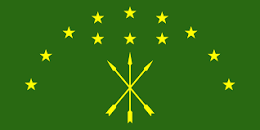
It is an umbrella term for people whose ancestral homeland was the North Caucasus Mountains and the northeast shore of the Black Sea, one that includes tribes such as the Adygheans, Ubykhs, Kabardins, Shapsugs, Abzakhs, Natukhais, Temirgoys, Bzhedugs, Mamkhegs, Ademeys, Zhaneys and Hatuqways. Since I am not a specialist in these matters, I will simply call them Circassians.
Somewhere between 4 and 8 million Circassians today live in 50 countries—primarily Turkey, Russia, Syria, Jordan, Germany, the United States, Iraq, Saudi Arabia and Egypt. Speaking the Circassian language, primarily the dialects of Adyghe and Kabardian, their roots in the northwest Caucasus region go back 6,000 years. Greek and Byzantine influence led to their acceptance of Christianity, and it was a strong and ancient tradition. But the Ottoman Empire, pushing up from the south, had other ideas; in 1717 a peremptory sultan gave the word that they should be converted to Islam (notwithstanding the fact that the Koran supposedly prohibits compulsion in religion). For reasons of self-preservation as much as genuine spiritual faith, many did.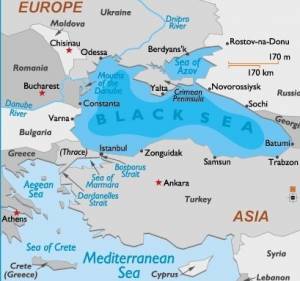
I may be showing my heterosexual and paternalistic bias, but the Circassians have long been known for the beauty of their women. It was commented on by such men as Maturin Murray Ballou (“a fair and rosy-cheeked race…with a form of ravishing loveliness, large and lustrous eyes and every belonging that might go to make up a Venus”), Henry Fielding, Woodrow Wilson, Lord Byron, Leo Tolstoy, Henry Lindlahr (“Circassian beauties are admired for their abundant and luxuriant yellow hair and blue eyes”), Voltaire, Mark Twain, Alexander Pushkin, Gustav Hugo and Bayard Taylor (“so far as female beauty is concerned, the Circassian women have no superiors [and] have preserved in their mountain home the purity of the Grecian models”). In the 18th and 19th centuries, advertisements for many feminine beauty products promised to deliver the famous good looks of Circassian hotties.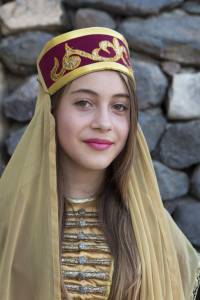
Because they were few in numbers, politically disunited and militarily weak—which is not to say they produced no fierce warriors, because they surely did—the Circassians were vulnerable. For hundreds of years, Circassian pulchritude was carried off to the harems and seraglios of the Russian Empire, the Crimean Khanate, the Ottoman Empire, the Persian Safavid Empire and elsewhere. Every rich and powerful man, it seemed, had a Circassian concubine. There was little they could do to prevent it, and this created emotional bruises in the people that have yet to heal. Worse than that, the Russians were determined to gain access to the Black Sea. They wanted the land on which the Circassians lived and, not even bothering to justify their rude ways, began infiltrating it in the 1760s. The Circassians, although splintered, managed to resist for a century. Eventually, however, the Russians, under Tsar Alexander II, prevailed and began a brutal program of ethnic cleansing that pushed most of the Circassians toward Turkey, the Middle East and to a lesser extent, Europe. (“Circassia is blotted from the map” read one headline in an American newspaper dated June 4, 1864.) Such a process is chaotic by its very nature, but this one was especially so. Hurt and bedraggled, many of the people died on the way. And upon arrival, they were not welcomed too warmly. The Circassians had to learn new languages and cultures, doing what they could to survive. What was left after the Circassian genocide was but a remnant.
Their last stand had taken place in Sochi. Perhaps you recall that is where the 2014 Winter Olympics were held, the ones on which Russian President Vladimir Putin lavished $51 billion. Members of the Circassian diaspora protested—to no avail, of course. Sites of mass graves were obliterated, covered over with concrete and facilities for curling, figure skating, hockey, alpine skiing, snowboarding and so on.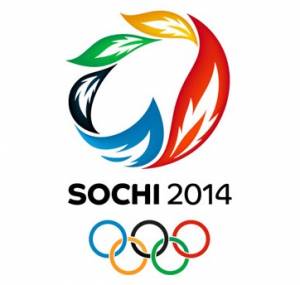
The Internet has facilitated a flowering of Circassian culture and traditions. The Circassian language, dance and music have been revived, a Circassian conference (“Hidden Nations, Enduring Crimes: The Circassians and the Peoples of the North Caucasus Between Past and Future”) was held at Tbilisi, Georgia in 2011, and there is a Circassian national flag along with a Circassian national anthem. Petitions have been fruitlessly presented to Moscow, calling on it to acknowledge the tragedy, issue an apology and pay reparations; indeed, some Circassians call for a return to their homeland and an independent state. Chechen and Ingush nationalists, whose ancestors also suffered Tsarist atrocities in the 19th century, cheer fervently. The Russian Bear, by contrast, takes note and scowls.

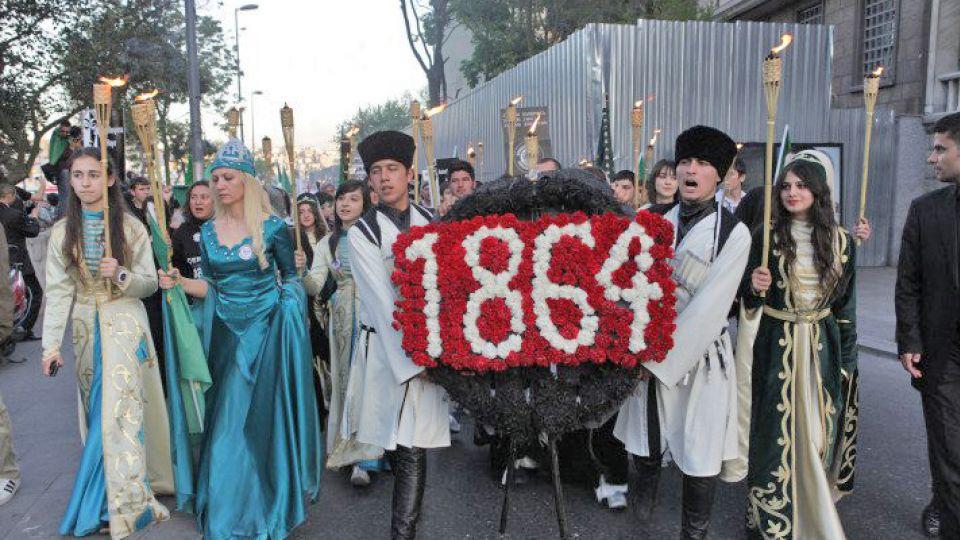
10 Comments
Very interesting. My ancestors were Ballou’s. I also can trace back to Napoleon on my mother’s side of the family. How tragic that we humans can be so cruel to other humans!
Maybe you are related to Mr. Ballou.
Every time I read your article I am surprised at your effort to gather such a many facts and backgrounds. Sad story of racial history. Koreans had miserable times from our neighborins countries of Japlan, China and Mongorian. It is unbelievable we have survived from hardshipls. Thank you for your wonderful job.
Thanks for reading and making a pertinent comment, my dear sir.
Richard, once more the Russians are front and center in the tragedies of our civilization. Very interesting reading on my part…..how did you ever decide to cover this subject? Pure genius.
Coach, in my reading I kept finding references to the Circassians. I finally got around to researching it and just had to write something. Thanks so much for commenting!
Richard:
I enjoyed your essay especially the amount of detailed research you put into it. Very well done. Interestingly, Sochi and the 2014 winter Olympics were a part of the story. Thanks for sharing.
Thanks, Rex. I agree–that part about the Sochi Winter Olympics is really upsetting. Darn Russkies…
I left my commend and its gone. Good job. This is a must to read unknown history. Shocking that human races were treated hoprribly. Thank you for your effort of discovering facts and history. I really enjoyed as I always do reading yhour valuable article.
I had never heard of them before, I guess it is a sad kind of evolution.
Add Comment